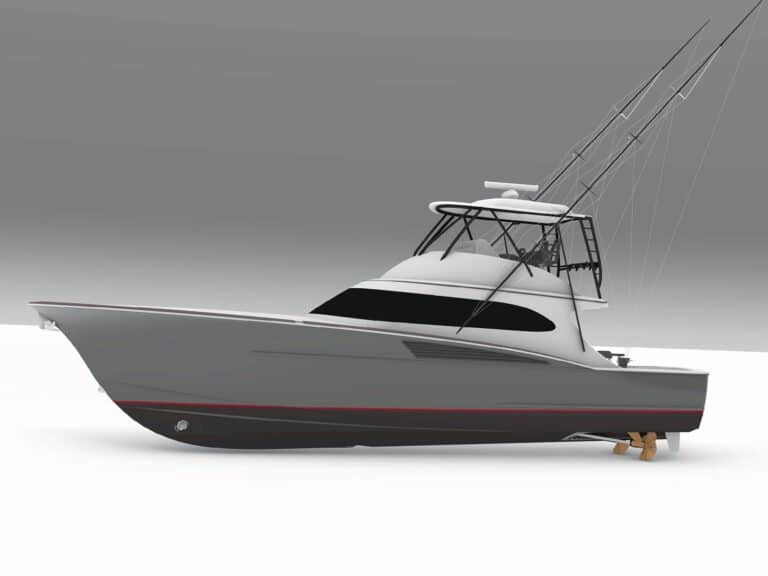
Special delivery: Sign up for the free Marlin email newsletter. Subscribe to Marlin magazine and get a year of highly collectible, keepsake editions – plus access to the digital edition and archives.
Early summer is my favorite time of year. School is out, and I see children fishing with their fathers or grandfathers, catching their first marlin. It’s gathering time on the docks where many of us grew up. Most of all, I like this time of year because it’s the start of big payday fishing tournaments.
As I write this, we just left the Abacos and, like many, will soon be fishing the Big Rock Blue Marlin Tournament in Morehead City, North Carolina. Last year the tournament paid out $5,835,705 in total purse with $2,769,438 going to the top boat. We will fish several club or charity tournaments throughout the summer, and then in early August, we’ll head to Ocean City, Maryland, for the White Marlin Open. In 2023, the tournament paid out an enormous $10,509,679, with Floor Reel taking home the top prize of $6,235,436. Just a couple of weeks later, the season ended with the MidAtlantic, where Boss Hogg took home $1,406,937 of the $5,790,020 total purse. With cash prizes like this up for grabs, how can you not get excited about the opportunity to compete in a tournament and catch a winning fish? If you’re a crewmember, this could be a life-changing event. Winning 10 or 20 percent of $5 million—that’s a lot of money.
Earlier this year, I received a call from a young man who was fortunate enough to be on one of those winning teams. A recent newlywed, he walked away with six figures, a welcome newfound nest egg for him and his wife. The young couple wants to start a family, so he of course had big plans for the money. Then April 15 rolled around, and the IRS came for its share of the winnings. Talk about a punch in the gut. Whoever wins big this year will have to go through the same thing.
So, to plan ahead, let’s look at some ways you may be able to alleviate your tax burden if you are fortunate enough to win one of these tournaments. The first step would be to contact your CPA or tax adviser. Work with them to sort out how the taxes will be paid on your winnings so you can manage your expectations. If fishing is your livelihood and not a hobby, the prize money will likely be taxed as ordinary income, which means your winnings may elevate you into a higher tax bracket. As a result, the IRS will want a little more of your primary income, in addition to your tournament winnings.
Once you’ve worked with your CPA or tax adviser, consider whether you can use your expenses as tax deductions. Again, if fishing is your occupation, you need certain tools of the trade to earn a living. I’d recommend looking at travel expenses, including gas or mileage, as well as any type of vehicle maintenance needed if you drive from one tournament to another. Don’t be shy about asking about sunglasses, sunscreen, boots, foul weather gear or any other gear necessary to perform your job. If you are on salary, these items may be difficult to deduct, but it’s worth the ask.
Lastly, as I discussed with that young man who won a good sum of money, set up some type of retirement account. The amount that can be contributed, and the total allowable deduction, will be determined by your marital status, age, filing status and total gross income. Any qualified financial adviser will be able to sit down with you and carve out a strategy to set aside funds for retirement and help lower your taxes through IRA contributions.
Read Next: Be Self-Aware of Sport Fishing Finances and Plan for the Unexpected.
If you are an independent contractor, you have many options available to you as well, including a simplified employee pension (SEP). In an SEP, one can contribute up to 25 percent of earned income up to $66,000. For example, if you are self-employed, win $100,000 in a tournament and contribute the maximum to an SEP, your taxable income is only $34,000. That’s a huge tax savings. Keep in mind an SEP can only be accessed after the age of 59 1/2 without a 10 percent penalty.
Another avenue to lower taxes is to utilize a health savings account (HSA) to pay for everyday medical expenses using pretax dollars. These expenses include but are not limited to medical, dental or vision coinsurance and copayments. Many medical equipment needs, including prescription eyeglasses and sunglasses, and certain over-the-counter medications and prescriptions are also covered.
It has been more than 25 years since I fished for a living, and a lot has changed. However, if I were fishing professionally today, I would sit down with a CPA in advance and determine a strategy that would benefit me if I were to win a big paycheck. Many times, we plan after we win, and that may be too late.
No one road map will work for everyone; there are just too many variables to consider. So don’t wait to address something as life-changing as a big tournament win. There’s an old saying, “People don’t plan to fail; they fail to plan.” With big money out there to be won, it’s time to plan.







